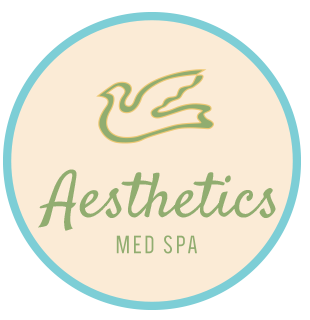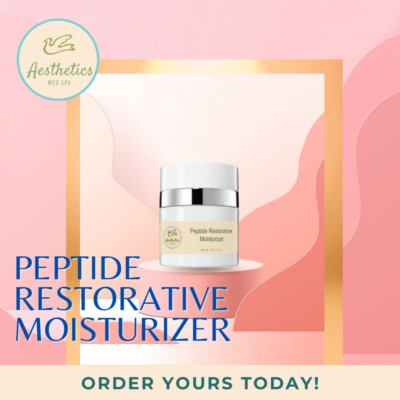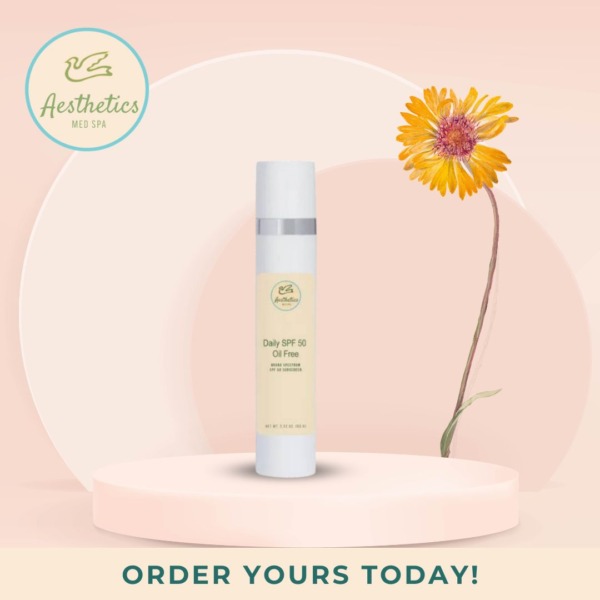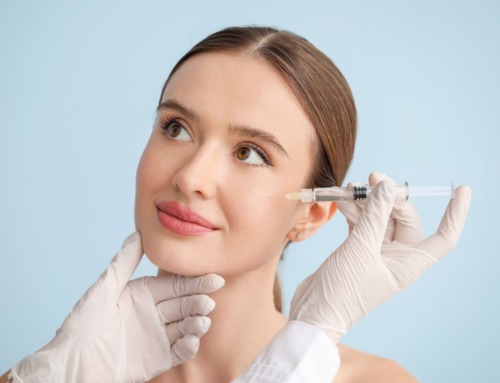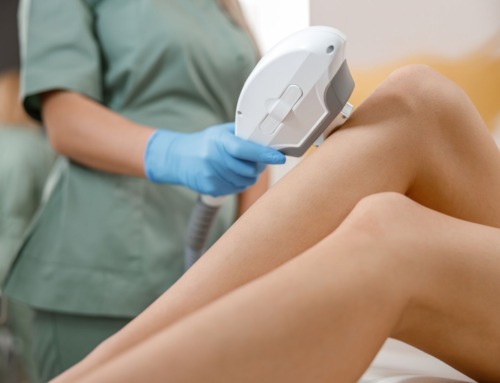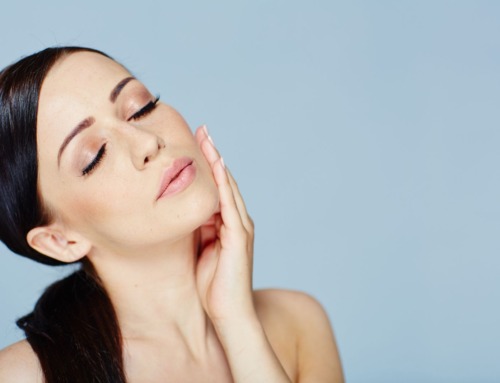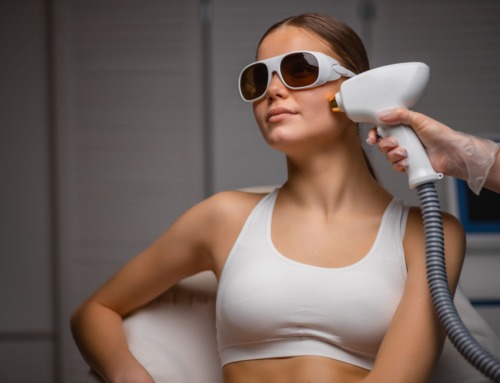No matter your gender, skin type, or age, taking care of your skin is important. Skin is the body’s largest organ and it’s important to keep it healthy. Skincare doesn’t have to be expensive or time-consuming. There are many simple things you can do every day for an effective skin care routine. Some basic tips are to drink plenty of water, eat a balanced diet, avoid sun exposure, and use sunscreen with an SPF of 30 or higher. However, if you’re aiming for a youthful appearance for many years, you should consider more than just a basic skincare routine. While this is a good starting point, there are other things you could include in your daily skincare routine to make sure you will never have dull skin and keep your skin youthful and healthy.
1. Get to know your skin type
The most essential step in developing and following an effective skincare routine for radiant skin is to know what type of skin you have and what are its needs.
Normal skin
Your skin is generally free of blemishes, including blackheads, whiteheads, and pimples. You don’t have any dry patches or flaky skin. Your skin feels smooth and soft to the touch. You don’t have any redness or inflammation. You don’t experience any excessive itching or burning sensations. Your skin doesn’t feel particularly oily or dry.
Oily skin
If you have oily skin, you may experience problems such as acne, blackheads, and enlarged and clogged pores. Your skin may feel greasy or oily to the touch because it may produce more oil than normal. Additionally, people with oily or acne-prone skin often have a shiny appearance, and their makeup may not last as long as it would on someone with a drier skin type. If you think you have oily skin, there are steps you can take to help control the oiliness. For example, you can use a gentle cleanser designed for oily skin and avoid using products that contain oils or heavy ingredients.
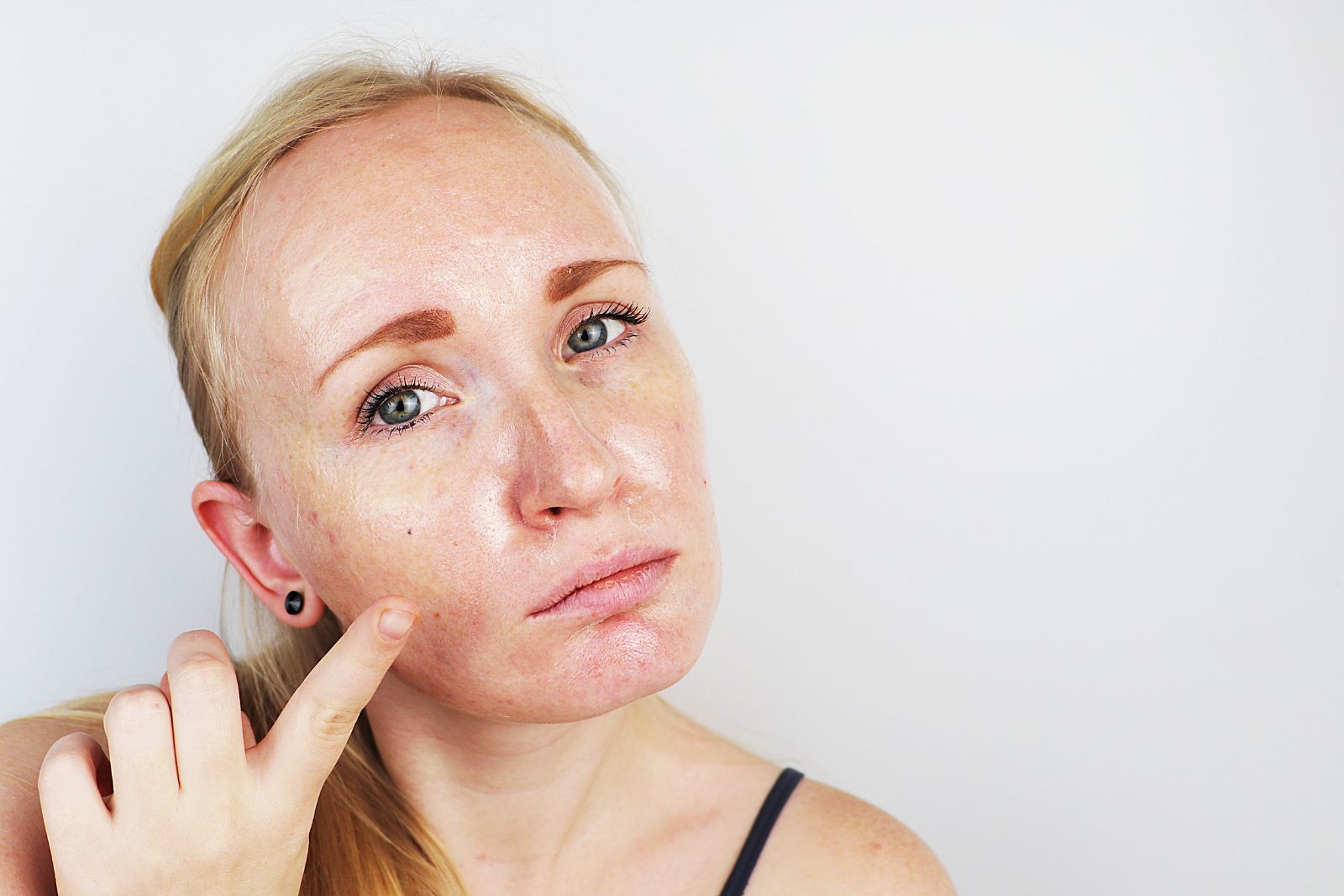
Dry skin
Dry skin is a very common skin condition that affects millions of people each year. It is characterized by a lack of oil and moisture in the skin. This can lead to a number of problems, including itching, cracking, and scaling. There are a number of things that can cause dry skin, including age, climate, genetics, and medications. The best way to prevent dehydrated skin is to use a moisturizer regularly.
Combination skin
Combination skin is one of the most common types of skin. It is characterized by areas of dryness and areas of oiliness. The T-zone, which is the area that extends from the forehead to the nose to the chin, is usually the oiliest part of combination skin. The cheeks are usually dry. Combination skin can be frustrating to treat because it can be difficult to find a product that will address both the dry and oily areas.
Sensitive skin
There are a variety of skin characteristics that can make someone more sensitive to certain skincare ingredients. For example, someone with dry skin may be more sensitive to soaps or detergents that contain harsh ingredients, while someone with oily skin may be more sensitive to acne formulas. Additionally, people with sensitive skin may be more prone to skin irritation, redness, and itching.
2. Cleanse your skin morning and night
Clean skin is the foundation of your skincare regimen. Start with a cleanser that is gentle, but removes built-up dirt and oil. Cleansing is a mandatory step in your skincare routine. Pick a facial cleanser with cosmetic ingredients such as glycolic acid and salicylic acid for the best results. If you have sensitive skin, you can use micellar water. A regular cleansing routine cleans out pores, resulting in less makeup caking on your skin. If you have acne-prone skin, use a gentle cleanser and an oil-free moisturizer. You can also consider Aesthetics Clarifying Pads created to remove dead skin cells and reduce acne blemishes and blackheads. If you struggle with sensitive skin, try Aesthetics Antioxidant Soothing Cleanser which treats your skin with kindness while making sure it gets a boost of antioxidants for a glowing look.
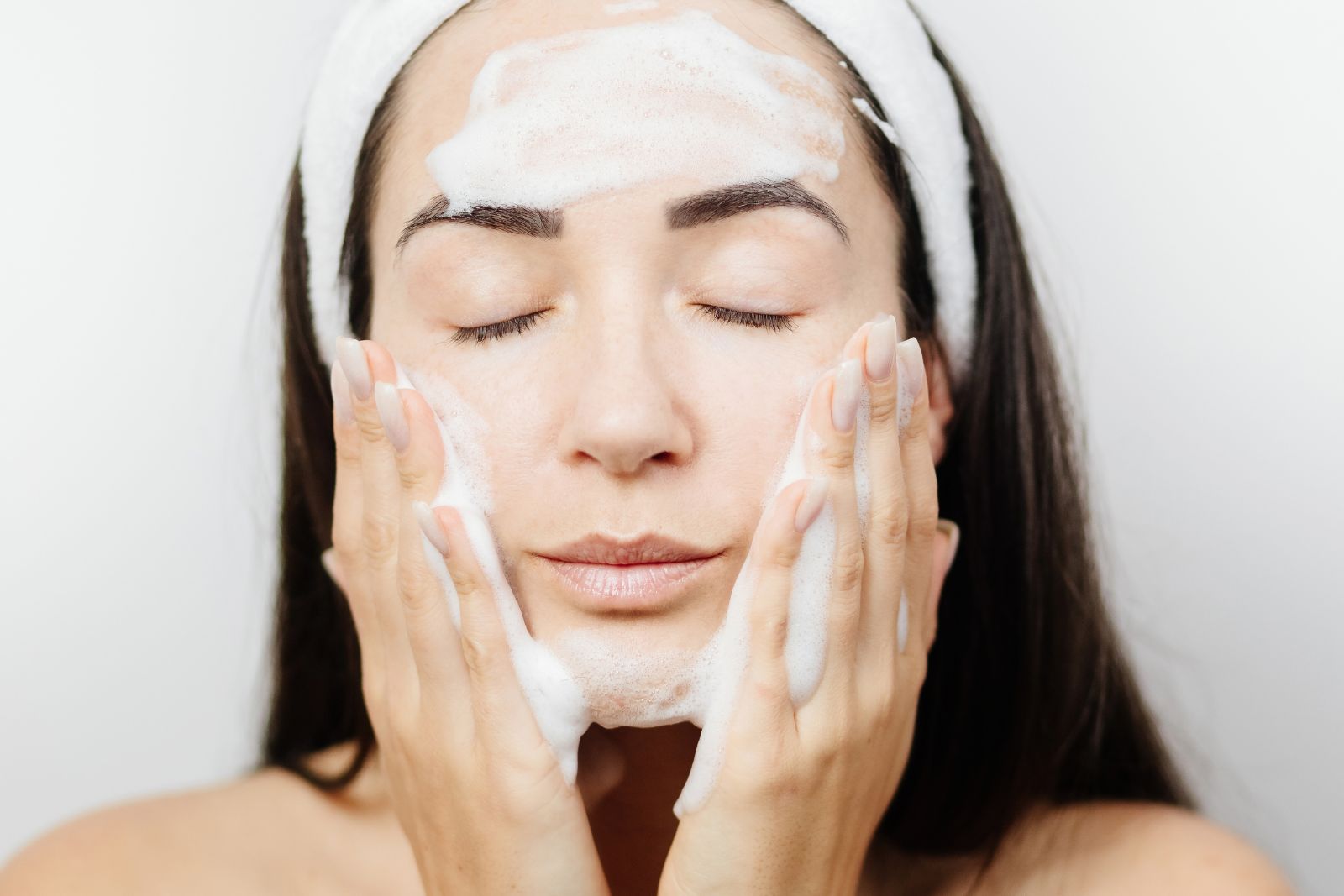
3. Tone your skin with a mild toner
Tone your skin with a mild toner daily to help keep it looking fresh and young. Toners remove any leftover dirt or makeup and close your pores, thus preventing breakouts. Look for a toner that is alcohol-free and has hydrating ingredients like aloe vera or glycerin. Apply the toner with a cotton pad or ball after you have cleansed your face, and before you apply moisturizer.
4. Apply serum as per your skin’s needs
Serums are a skincare category on their own. They’re a more concentrated version of essence or toner and often contain active ingredients that address specific skin concerns. The beauty industry promotes a variety of serums, but the most popular are the Vitamin C serums and anti-aging serums. So, how do you know which serum to choose for your skin type? If you have normal skin, you’ll probably want to look for a serum that contains niacinamide, which boosts collagen production and helps prevent breakouts. If you have dry skin, try an oil-free serum with hyaluronic acid and ceramides. People with sensitive skin should look for serums with ingredients like lavender and chamomile, which are soothing and calming. If your skin is in need of a boost of antioxidants, look for a serum with a formula based on vitamin C or E such as Aesthetics Brightening and Tightening Collagen Treatment, a powerful antioxidant serum ideal for all skin types. Remember that serums work best when they’re layered under an already-existing skincare routine.
5. Always use a moisturizer
Not using a daily moisturizer is one of the biggest beauty mistakes you can make as is not using eye cream for the delicate skin around your eyes. Moisturizing needs to be a priority if you want to avoid moisture loss and improve the natural moisture barrier of your skin. There are lots of different moisturizers out there, so finding one that works for you can be a bit of a challenge. If your skin is really dry, try using a cream or ointment instead of a lotion. Even if you have combination skin, it is important to moisturize your skin. Apply lighter moisturizers with an SPF of 15 or higher for extra protection from the sun, and don’t forget to add night creams to your daily routine. If you’re not sure yet what moisturizer to use, you can always try Aesthetics Ultra Lightweight Moisturizer, a restorative and rejuvenating moisturizer formulated to suit all skin types. If you’re looking for a powerful anti-aging cream, Aesthetics Peptide Restorative Moisturizer will pamper and nourish your skin with a delicious mix of peptides, ceramides, antioxidants, and hydrators to help you keep your skin hydrated for 24 hours.
6. Use SPF daily
We cannot stress enough the importance of using sunscreen. Yes, even when it’s cloudy outside! The best way to fight the signs of aging is to prevent them from appearing in the first place. By using sunscreen with an SPF of 15 or higher, you’ll protect your skin and reduce your risk of developing skin cancer by 90%. Not all sunscreens are created equal, however. Look for a sunscreen with broad-spectrum SPF protection like Sheer Oil Free Sunscreen SPF 50 that protects your skin from damaging UV rays while combating the signs of aging. This means it blocks both UVA and UVB rays, which cause premature aging.
7. Address your skin concerns head on
If you have any skin concerns (acne, wrinkles, etc.), consult a dermatologist and try to adopt the right measures as early as possible. People struggling with acne can use products designed to control the bacteria that cause pimples. Aesthetics recommends the Deep Cleaning Mask as part of your anti-acne regimen. If you have mature skin, try using special wrinkle creams formulated for this purpose, or discuss your options with skin specialists who can recommend various minimally invasive procedures, such as laser skin rejuvenation or PRP injections. A lot of people also opt for anti-wrinkle treatments like microneedling or skin tightening, which are typically more effective than facial creams.
8. Exfoliate
Exfoliation helps remove dead cells and dirt. It can also help unclog pores and improve circulation. It is important to exfoliate the right way, however. The wrong type of exfoliation can cause damage to the skin and lead to skin issues or even permanent scarring. The most popular product used for exfoliation is a scrub. You can choose from gentle scrubs made with sugar or salt to more abrasive ones made with ground-up nutshells or seeds. Scrubs have numerous benefits. They even out your skin tone, reduce the appearance of pores and dark spots, and promote cell turnover. For a more in-depth exfoliation, you can make an appointment for a chemical peel. Chemical exfoliants usually come in the form of a gel or cream and contain ingredients like hydroxy acid, glycolic acid, or salicylic acid that dissolve the bonds between dead skin cells. Using an exfoliator two or three times per week can help your skin look smoother and brighter.
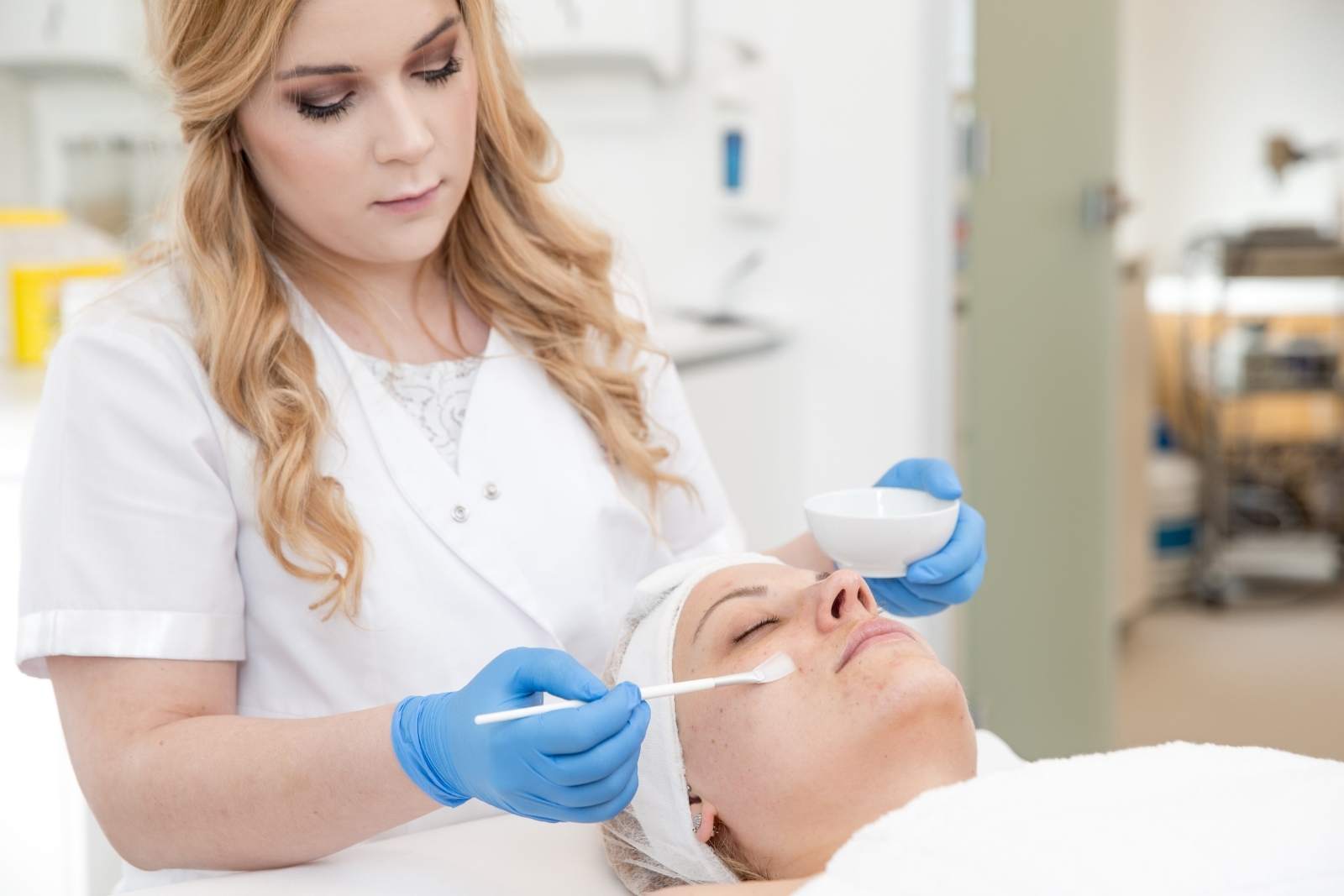
Final thoughts
A proper skincare routine is essential for skin health! In the skincare world, there is a lot of information and misinformation floating around. It can be hard to determine what is true and what is false, what works and what doesn’t. But don’t worry, we’re here to help. Our skin specialists are on hand to answer your questions and recommend the best skin care products and treatments for healthy skin. Remember that everyone’s skin is different. What works for one person might not work for another. So it’s important to experiment until you find what works best for you. And always get your beauty sleep!
